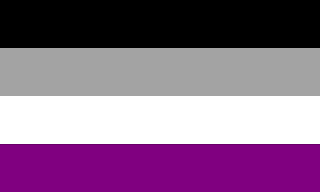Writing Assignment #1 - Quin Lewis
The "G" Word: Perspectives on Gender from a Queer Woman of Color
boys, and living in the South caused me to view my gender as a way of serving men and to not be a
threat.
The strict dress code and the casual bullying through my K-8 education made me hate the “feminine” side of myself. I was raised by white parents and went to a predominantly white K-8 private school where the dress code was enforced more heavily on the girls than the boys. The rules for girls were to not show anything past the collar bone, if one wore skirts, they had to be two inches above the knee, and lastly, do not wear any makeup. On the other end, boys must not grow hair beyond their ears and must wear polo or dress shirts. It was assumed by the school officials that boys were not capable of expressing themselves through makeup or jewelry and that people who did not fit into the gender binary simply did not exist. Girls were made to feel ashamed in front of the entire class for their skirts being a hair off of what our teacher’s ruler said. Because I identified as a woman and saw how wearing stereotypically feminine clothing or makeup was punished by authorities, I then associated those feminine products with negative traits. It was also normal for boys to slut-shame or make fun of the girls for speaking in class, but it would all be masked under the saying, “Well, he’s just saying that because he likes you” by our educators or our parents. These authorities and institutions limited any freedom of gender expression with their dress codes and displayed their lack of empathy for those who wanted any validation or sympathy.
My Southern white grandparents have definitely pushed their ideas of gender onto me. They ask what men I am attracted to and make rude comments on women who do not dress “modestly”. This has also shaped how I viewed my femininity and sexuality. For my grandparents, it was expected that I would have a boyfriend in college and as soon as I graduated, I would marry him and have children. They left little room to explore outside of the heterosexual bubble, the bubble they themselves have been convinced of their whole lives. These old-fashioned ideas have been passed down to me in small comments that made growing up into being a woman difficult. Dress nicely and attract a man through cooking and cleaning in the house. But if you dress in a skimpy way, you are a “whore” or “prostitute”, which then constitutes shame and ridicule. If I were to come out to them or dress the way I wanted, it would shatter this image of the “perfect girl” and likely ruin our relationship. Therefore, my gender and how I express it in their narrow point-of-view is paramount to gaining their love and respect.
This kind of “respectability” pervades both my race and gender: the scripts of the “docile Asian” and“docile woman”, both being seen as “weak” and “non threatening”, and being a “smart Asian” and a “smart woman, but not too smart” are stereotypes that go hand in hand. Both groups must not be a threat to the cis heterosexual white men; however, when it comes to races or ethnicities with darker skin, women of color tend to be respected less or treated unfairly because of both race and gender. Certain groups like Latinas and Black women are seen as “aggressive” or “loud”, which is the opposite of what is expected of Asian women. If sexual orientation was included in this, the sense of being the “other” is heightened even more as being labeled as “gay” is used as a pejorative. There is a shunning from one’s own race or a turn to religion to “save” someone. We look to the churches that have harmed people of color in the past and use them to exclude and demean others for their language, sexuality, and culture. Some of these religious or cultural institutions then cycle through harmful and outdated rhetoric surrounding gender and influence an entire community on what is the “correct” lifestyle. Race, gender, and sexuality are all influenced by the powers that run our education and religious establishments that are bolstered by our guardians. The effects of negative association with a certain race or gender or sexuality come in the forms of internalized self and outward hatred that then leads to harmful legislation, ultimately harming every human from expressing themselves in their truest way.

I feel like we had similar ideas on struggling to relate to femininity but different stories! It was really interesting to see your personal perspective on it, especially as a queer woman of color growing up in the South.
ReplyDeleteI really resonated with what you were saying about worrying about how your grandparents might react if you truly expressed yourself to them, how you kind of have to put on a facade in front of them to fit their outdated ideas of how to act. My mom has advised me not to even try explaining my gender identity and sexuality to them or correct them when they call me a girl, and it's caused me to fear what they might say or how they'd react if I ever told them. So it always feels like I'm performing when I visit them, which sucks cause they're my family!!
ReplyDelete